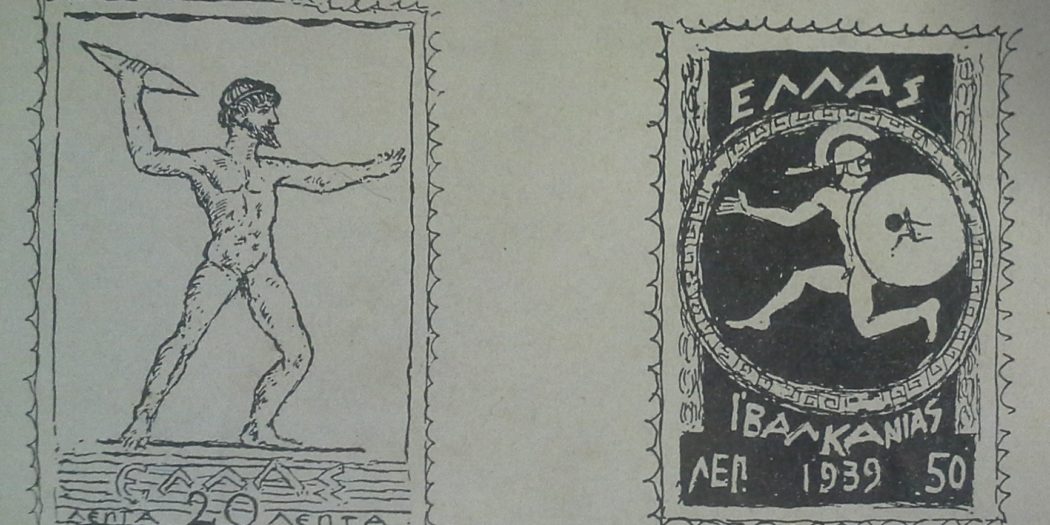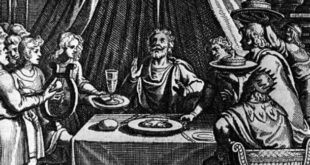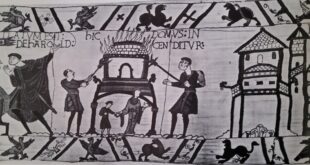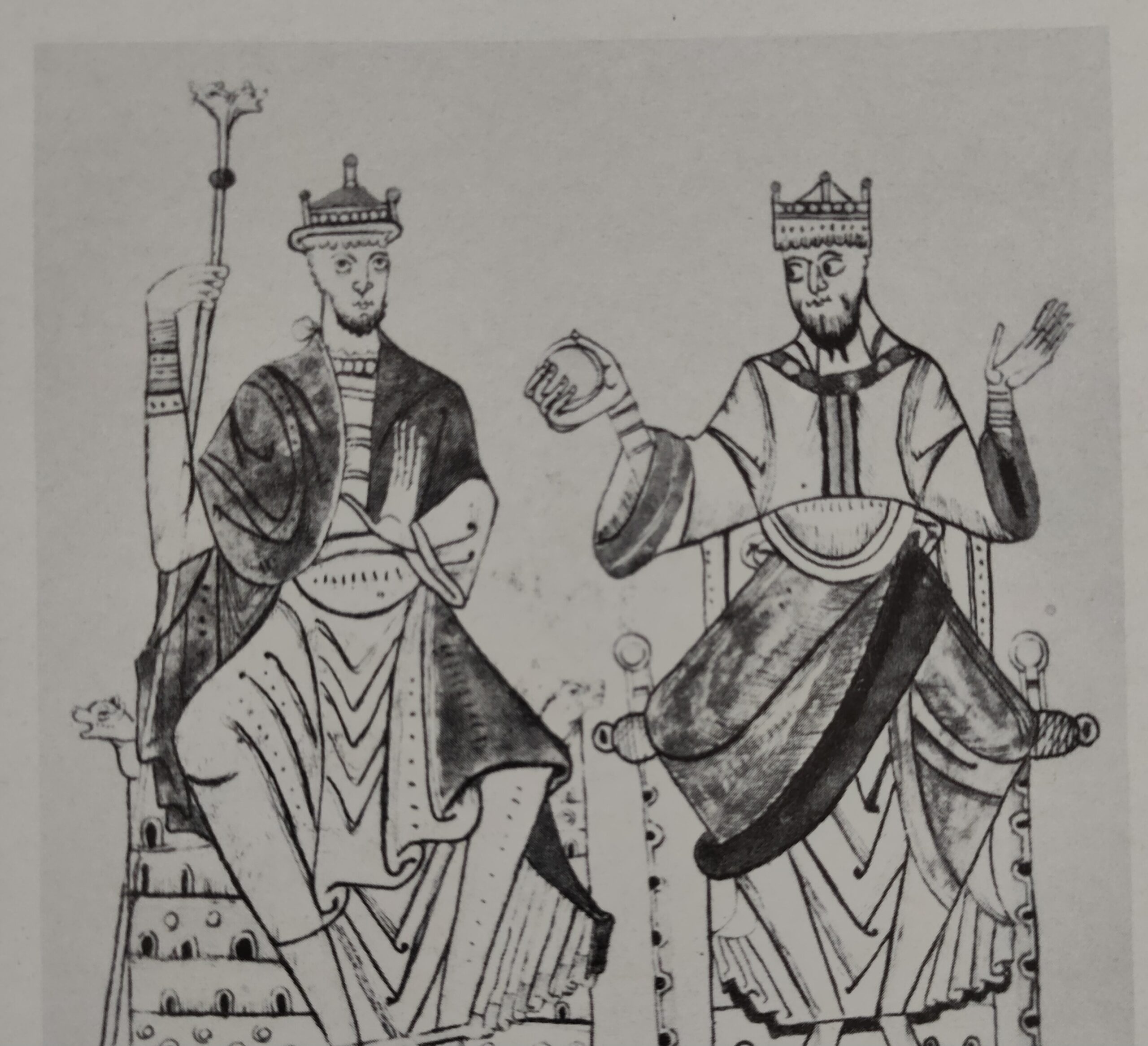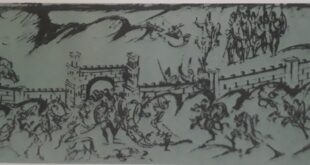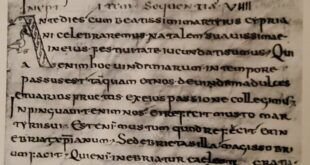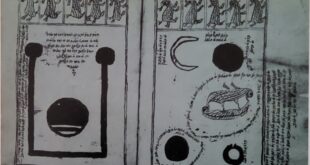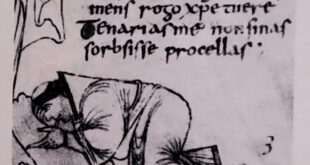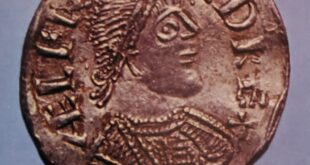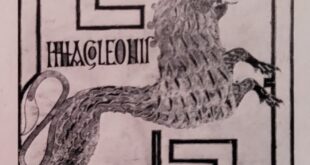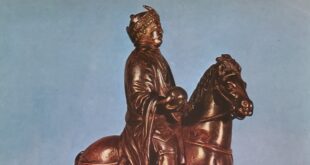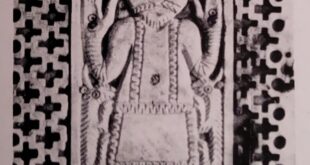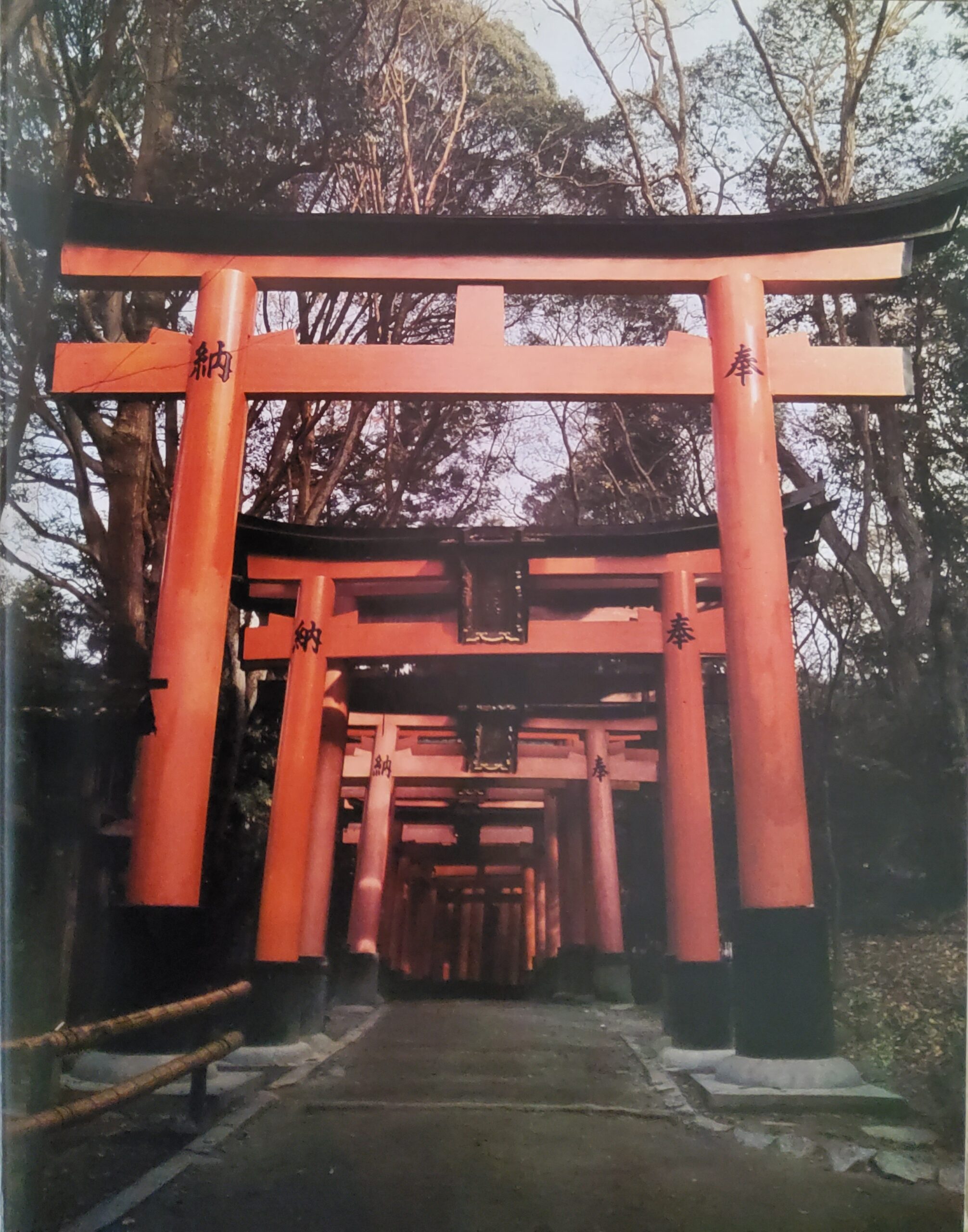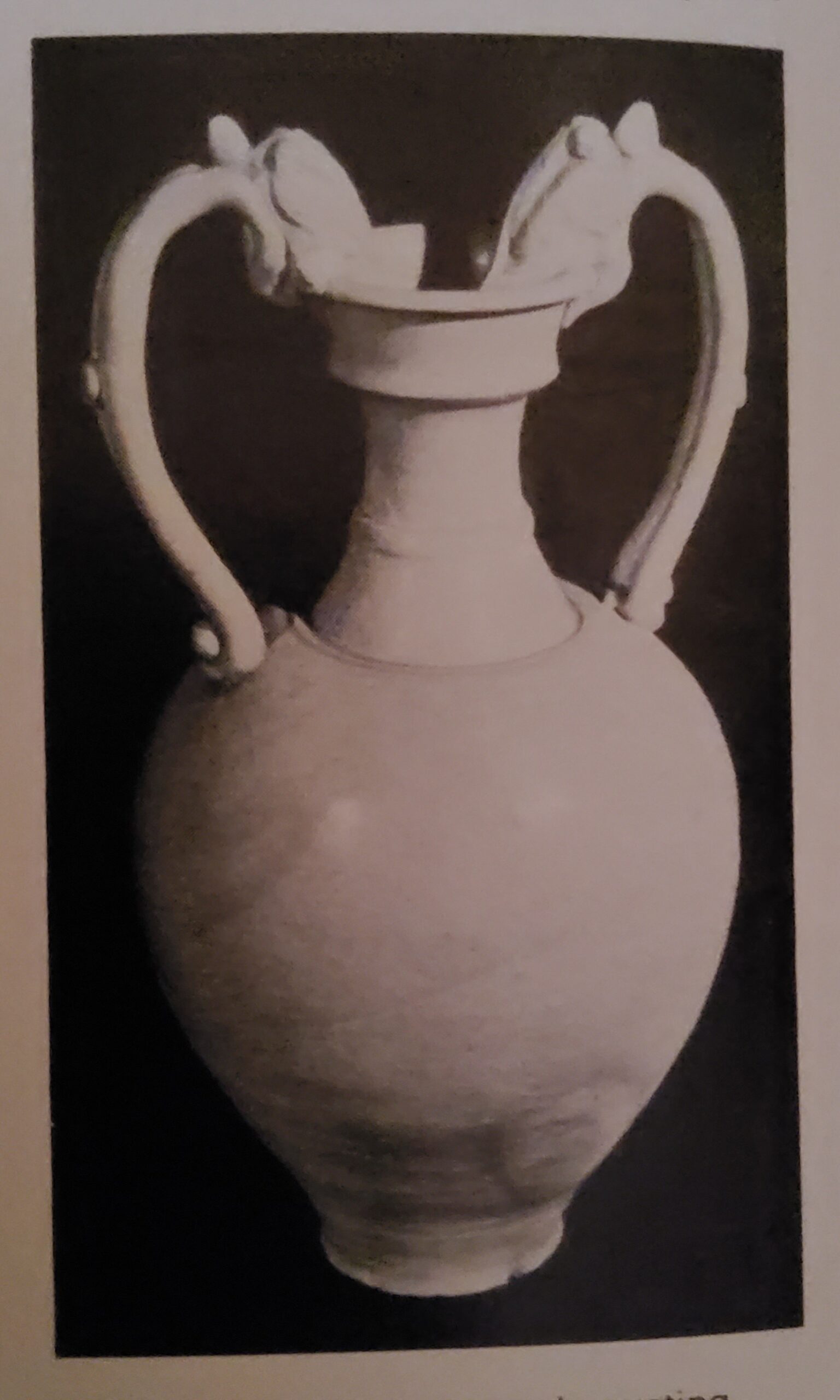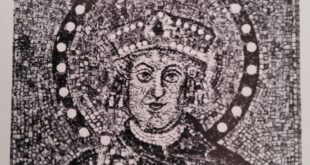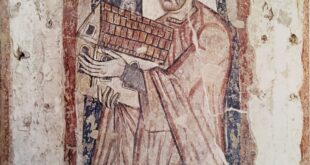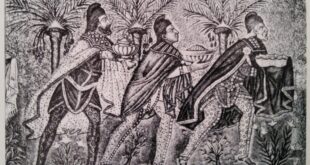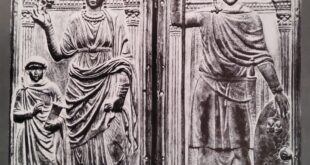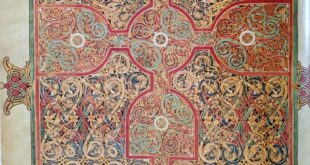GREECE is a country that people go to on cruises in spring, summer and autumn. Like other people who go on cruises, they are in search of sunshine. They pack bathing suits. But, unlike most other people who go on cruises, they also pack a lot of books-The Iliad, The Odyssey, How to enjoy GreekArt, The Greek CityState, The Play: of Sophocles. Some of the books are in Greek, e.g., The Apology of Socrates.
There is another queer thing about cruising to Greece. The labels on the passengers’ luggage probably do not have the word “Greece” on them at all. Instead you will find the word “Hellenic”. This is a “Hellenic” cruise and the king of the country the passengers are about to visit is called King of the Hellenes, not King of Greece. When they buy their first postage stamps after arriving in Athens they will find them inscribed, which in English would be written HELLAS.
The fact is that the Greeks, who call themselves Hellenes, have a very long and in some respects very splendid history. They are proud of it and people of other countries approach Greece with reverence.
Reverence means loving and admiring at the same time. It is a much more serious feeling than usually comes over a person looking at Stonehenge or the Pyramids.
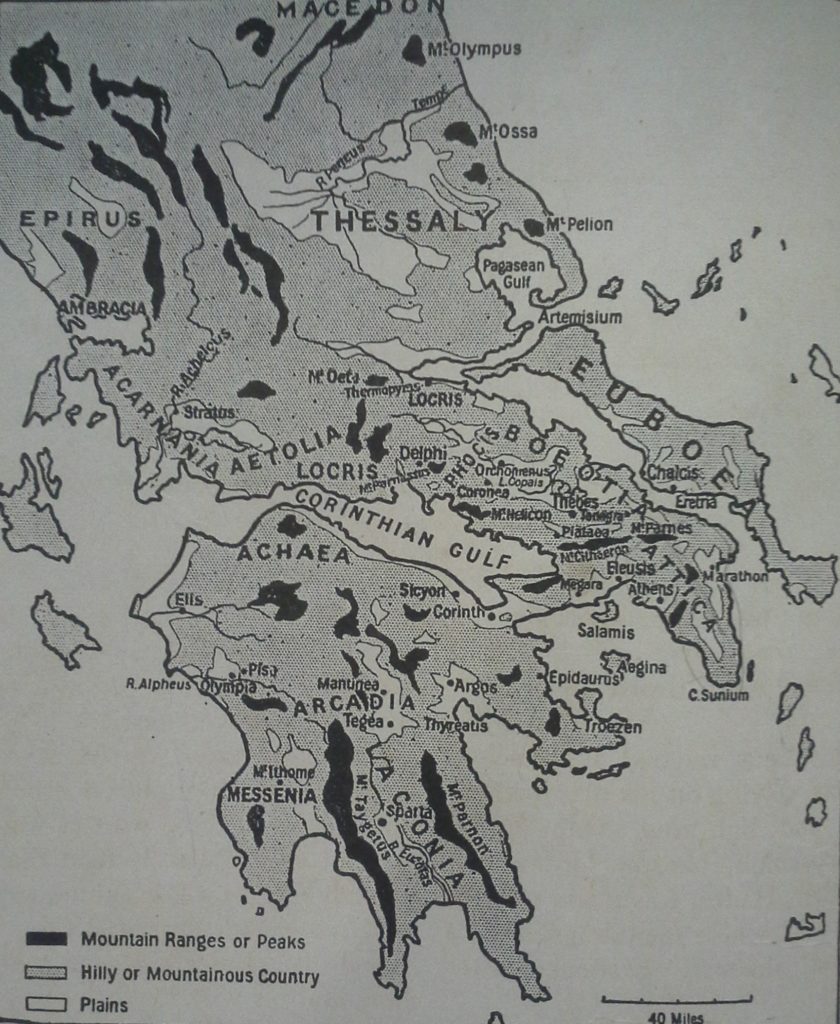
Who were the Hellenes, whom we call Greeks because the Romans called them Greeks? This is the first of many questions about early Greek history to which there are two answers — the truth, as far as we have been able to get at it and the myths and legends told among the ancient Greeks themselves.
It is usually convenient to put the old story first and the truth, as far as it is known, second. For the truth is usually shorter and duller.
The Greek story of the creation of the world told how, in the beginning, there was Chaos; then came Gaea, the broad, firm, flat Earth with a dark region called Tartarus below. Gaea produced Uranus (Heaven), the mountains and the sea.
Gaea then married Uranus. Their children, among them the Titans, were ferocious and undisciplined. Uranus stuffed them away into cavities in the earth. Gaea did not like this. She produced iron and made a weapon which the Titan Cronus used to dethrone his father.
Cronus was afraid that his children would treat him as roughly as he had treated Uranus. Eventually they did. One of them, Zeus, led the others in a revolt against their father. Cronus and the Titans held out in a tremendous struggle which lasted ten years, but they were finally defeated and thrust down into Tartarus.
Thereafter Zeus reigned supreme on Mt Olympus, relying on his two weapons — thunder and lightning. One of his brothers, Poseidon, became lord of the sea. The other, Hades, was made ruler of the underworld, where men dragged out a sombre and shadowy existence after death.
Zeus had many wives, of whom Hera, who was also his sister, was the chief.
He also had many children. among them Apollo (God of prophecy, poetry and music) Dionysus or Bacchus (God of wine) Hermes (Messenger of the Gods) and Athena. Athena’s mother was the wisest of the goddesses and Zeus was warned that any children she might bear would grow to be stronger than he. So the story was that Zeus swallowed this wise goddess. Her child, Athena, later Sprang fully armed out of the top of his head. She had inherited her mother’s brains. So she became the goddess of wisdom, but she was also a warrior goddess, who wore armour and never married.

Zeus had other worries as well as the headache which produced Athena. One of the biggest of these worries was the badness of men. Zeus decided that the best remedy for this was to submerge the whole of Greece with torrential rain. Everyone was drowned except for one man, Deucalion and his wife Pyrrha. They had been warned in time for them to build an ark which floated over the flood waters and finally beached on Mount Parnassus.
Hermes was then sent to offer Deucalion a gift from Zeus. Deucalion said that what his wife and he wanted most of all was company. They were told to throw stones over their heads. These turned into men and women. Later, however, Deucalion and Pyrrha settled down and brought up a family. One of their sons was Hellen. From him, it was said, the Hellenes were descended.
So much for the myths. In fact, all we know about the Hellenes is that they were a tribe in northern Greece whose name gradually came to be used not only by the whole of mainland Greece but by Greeks everywhere — in Asia Minor, on the islands and in colonies all round the Mediterranean.
As you will see, the Greeks fought each other frequently and never united for long. They felt that they all had something in common compared with non-Greeks, whom they called barbarians.
So “Hellas” meant the whole of the scattered Greek world.
